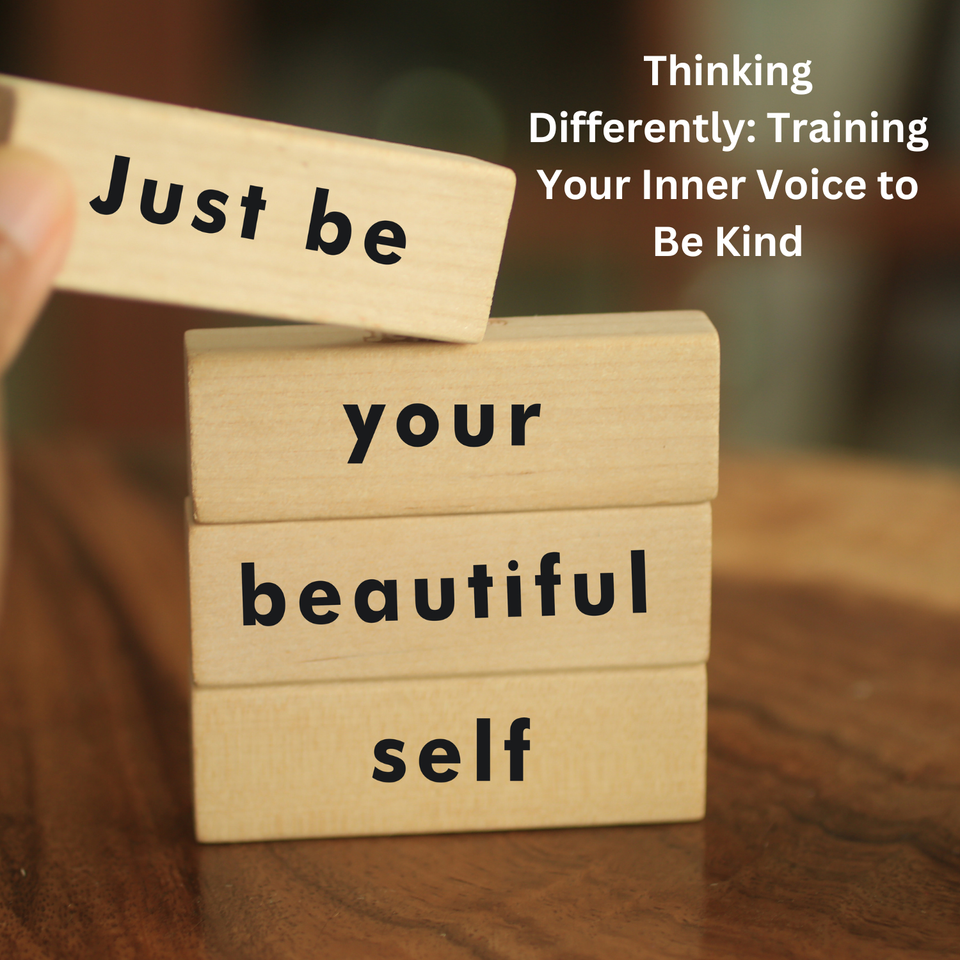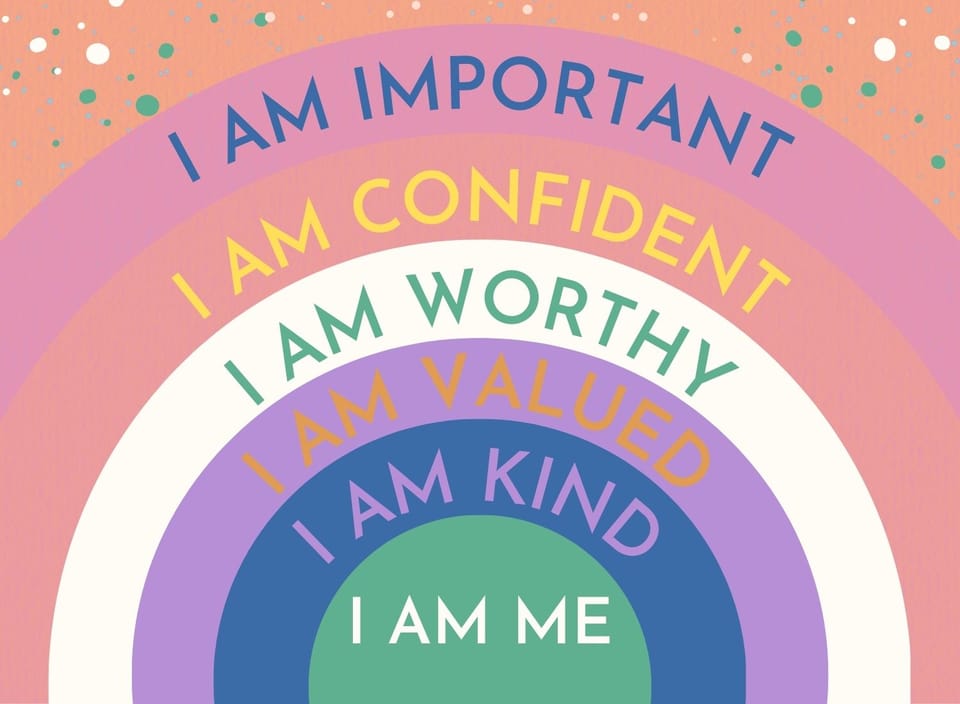Positive Self-Talk 101: Have Fun Hyping Yourself Up

Introduction
Let’s be honest: most of us talk to ourselves like we’re the villains in our own life story. We make a tiny mistake, like spilling coffee or forgetting to turn off the stove, and suddenly we’re our own worst critic, muttering, “Nice job, genius,” or “Wow, what a disaster!” But what if we could flip the script? What if, instead of acting like our personal hecklers, we actually became our biggest cheerleaders? Sounds weird, right? But hey, let’s give it a shot—because if we don’t hype ourselves up, who will?
Here’s a humorous guide to mastering the art of positive self-talk. Brace yourself for some pep talks, questionable affirmations, and a sprinkle of delusional optimism. With a bit of practice, you might even start to feel like you’re the most fabulous person on the planet (or at least the most fabulous person in the line at Starbucks).
1. The Classic Mirror Pep Talk: “You Got This!” (Even If You Don’t)
Let’s start with the oldest trick in the self-love book: the mirror pep talk. This is the classic move where you stare deep into your own eyes and say things like, “You’re amazing,” “You’re a legend,” and “Yes, you can absolutely pull off that outfit.” It’s a little cheesy, but it’s surprisingly effective.
How to Do It Right:
Stand in front of the mirror, look yourself in the eye, and confidently say positive things. Go big with the compliments. Try saying, “You are a radiant beam of pure awesomeness,” or “You could probably charm a squirrel right out of a tree.” It may feel silly, but the key is to make yourself believe it—even if you’re still half asleep with toothpaste on your chin.
Go All-In:
For added effect, try adding a power pose. Think superhero stances, hands on hips, and chest puffed out. It’s hard to feel down when you’re standing like a warrior about to take on the world. Research even shows that power poses can boost confidence. So go ahead, be ridiculous—it’s scientifically backed!
Caution:
Don’t let your roommate or spouse catch you doing this. It’s hard to look cool when you’re shouting, “I am a WINNER!” at your own reflection while holding a toothbrush. But hey, if they do catch you, invite them to join in. Who couldn’t use a little extra pep in their step?
2. Rewrite Your Inner Critic: “Constructive Criticism, Please!”
Most of us have an inner critic who sounds like a grouchy gym teacher who’s disappointed in our sit-ups. When you catch yourself saying things like, “You’re so clumsy!” or “Wow, you failed AGAIN?” try a little rephrasing exercise.
Our brains tend to take these negative statements to heart, even if we’re joking. Instead, try to reframe that criticism into something constructive. It’s all about tricking your mind into a more supportive outlook.
Example:
Instead of saying, “You’re a disaster at parallel parking. Stick to the bus, champ,” try saying, “Parallel parking is tricky! But hey, you’re learning, and you only took out one trash can today. Progress!”
Or, instead of “Ugh, I can’t do anything right,” go with, “This was a challenging task, but every try gets me closer to nailing it. I’m practically a work-in-progress genius!”
Bonus Tip: Name Your Inner Critic
Give your inner critic a funny name—something like “Debbie Downer” or “Judgey Judy.” Whenever they start their negative commentary, just say, “Not now, Debbie!” or “Take a hike, Judy!” It’s easier to ignore criticism when it comes from a character with a ridiculous name. Soon, your inner critic will feel more like a comic relief than a bully.
Turning negative statements into positive (or at least less awful) ones is like mental gymnastics. Sure, it’s a bit awkward at first, but over time, your inner critic might start sounding less like a grumpy gym teacher and more like a mildly supportive neighbor. Small steps!

3. Fake It Till You Make It: The “Over-the-Top” Confidence Game
Sometimes, it helps to go so overboard with positive self-talk that it’s borderline ridiculous. Think of it as method acting for confidence. When you’re facing a big moment or just trying to get through a tough day, pretend you’re the most fabulous person in the room.
Example:
Walk into your next meeting like, “I’m Beyoncé today, and everyone else is a backup dancer.” Or, if you’re about to cook dinner, try, “Move over, Gordon Ramsay, there’s a new chef in town!” Go all-in, even if it’s just microwaving leftovers.
Pretending to have confidence, even if it’s over-the-top, can help you tap into real confidence. It’s like putting on a costume to get into character—only, in this case, you’re putting on the character of “super-awesome you.”
Warning:
This technique may lead to a brief but intense sense of delusion. Embrace it. If anyone questions you, just tell them you’re “working on your confidence” or “manifesting a winner’s mindset.” After all, confidence is contagious, and the more you fake it, the more you’ll start to believe it.
4. Turn Mistakes Into Motivational Moments (Yes, Even Spilling Coffee)
It’s easy to beat yourself up when you mess up. We’ve all been there. But here’s the thing: life is FULL of little mistakes, so why not make them part of your motivational narrative? Instead of treating mistakes as catastrophes, treat them as funny little quirks that make you unique.
Instead of thinking:
“Great, I just spilled coffee all over myself. Again.”
Try this:
“Look at me, spilling coffee because I’m a passionate, caffeinated human! It’s a sign that I’m going places—preferably, to grab some paper towels and a new shirt.”
Mistakes don’t define us; they just add color to our story. Think of them as character-building exercises or unique plot twists. Did you send an email to the wrong person? Well, that’s just proof that you’re working hard and multi-tasking. Didn’t understand something the first time around? Perfect! Now you get to learn it twice, like an overachiever.
Practice This Habit Regularly:
Catch yourself when you mess up and immediately say something funny or supportive. It might feel strange at first, but eventually, you’ll start finding humor and resilience in even the most awkward moments.
5. Create Your Own Go-To Mantras: “I’m Fabulous, and Here’s Why”
Mantras aren’t just for yogis and self-help gurus—they’re for anyone who needs a quick mental pick-me-up. The trick is to make mantras that are simple, memorable, and a little bit ridiculous, so you actually enjoy saying them. Mantras can be empowering, funny, or just plain bizarre, as long as they make you smile.
Here are a few ideas to get you started:
- “I’m like a fine wine—I get better with age.”
- “I am a human beacon of kindness, intelligence, and sheer fabulosity.”
- “Mistakes? I call them character-building exercises.”
- “Today, I will conquer my to-do list like a warrior but in sweatpants.”
Feel free to add your own flair. The sillier, the better. The goal is to have a go-to list of affirmations that you can turn to when you’re feeling down. Repeating these mantras daily, especially when you’re struggling, can genuinely help boost your mood and self-confidence.
A Word of Caution:
If you ever find yourself chanting “I’m a unicorn of productivity” in public, people may give you strange looks. But honestly? That’s their loss. Who wouldn’t want to be a unicorn of productivity?
6. Embrace the “Fake Interview” Technique
Ever watched a celebrity interview and thought, “Wow, they are so calm and confident”? Well, now it’s your turn to be the star. Imagine you’re being interviewed on a talk show, and you’re the absolute expert on being… yourself.
Example Questions to Ask Yourself:
- “What’s your greatest strength?” (Answer: “My ability to find the remote without even looking.”)
- “How do you handle setbacks?” (Answer: “By pretending they’re plot twists in my epic movie of life.”)
- “What’s your superpower?” (Answer: “The power of coffee. And maybe resilience.”)
This is a playful way to recognize your strengths and boost your confidence. Plus, if you’re really getting into it, you can start using a hairbrush as a microphone. Sure, it’s silly, but sometimes, the silliest things can make the biggest difference.
Conclusion: Embrace the Awkward Positivity
Positive self-talk might feel awkward, silly, and even a bit cringe at first. But give it a try—you might be surprised how quickly it can turn your mood around. The key is to be kind to yourself and not take everything so seriously. Life’s already full of challenges, so why add yourself to the list of critics weighing you down?
Think of it this way: we spend so much time giving love, support, and encouragement to others. Isn’t it time we directed some of that kindness inward? By embracing a little “awkward positivity,” we’re not just humoring ourselves; we’re building resilience, boosting our confidence, and learning to bounce back from life’s inevitable hiccups. And yes, we might look ridiculous talking to ourselves in the mirror or pretending we’re superstars in imaginary interviews—but who cares? That little bit of silliness is a small price to pay for a happier, healthier outlook.
So, next time you’re feeling down, instead of letting that inner critic run wild, try turning up the volume on your inner cheerleader. Remind yourself of your strengths, laugh at your quirks, and celebrate your victories (no matter how small). Positive self-talk isn’t about ignoring reality or pretending everything’s perfect. It’s about recognizing that you’re worthy of compassion, even from yourself.
Embrace the awkwardness, sprinkle in a little humor, and keep practicing. Before long, you might just find that the most supportive voice in your life is your own. And who knows? Maybe one day, you’ll catch yourself genuinely believing that you are the radiant beam of awesomeness you keep telling yourself you are. Because, honestly? You are.




